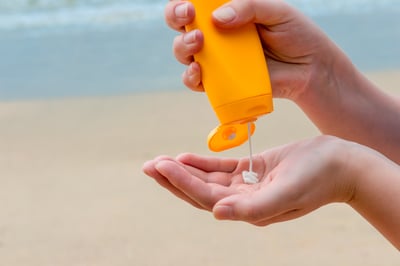eStoreRx™
Online Supplement Dispensary
eStoreRx™ is an easy direct-to-patient ordering & fulfilment program for lifelong wellness.
For over 40 years, Biotics Research Corporation has revolutionized the nutritional supplement industry by utilizing “The Best of Science and Nature”. Combining nature’s principles with scientific ingenuity, our products magnify the nutritional
eStoreRx™ is an easy direct-to-patient ordering & fulfilment program for lifelong wellness.
Biotics Research is proud to expand our commitment to education with the Wellness Unfiltered Pro Podcast. Each episode delves into key health topics and the clinical applications of our premier products. Through candid, insightful conversations, our team offers practical guidance to keep you informed and empowered as a healthcare professional.
February 19 2026
The journal Sleep Medicine Reviews recently published the results of a systematic review and meta-analysis examining melatonin supplementation among c...
 With the summer sun shining, more and more people are reading the ingredients lists on their sunscreen containers. Handily, the Environmental Working Group (EWG) has compiled a list of chemicals in sunscreens to be on the lookout for. However, the information listed doesn’t include a recent study on the potential toxicity of titanium dioxide (TiO2).
With the summer sun shining, more and more people are reading the ingredients lists on their sunscreen containers. Handily, the Environmental Working Group (EWG) has compiled a list of chemicals in sunscreens to be on the lookout for. However, the information listed doesn’t include a recent study on the potential toxicity of titanium dioxide (TiO2).
Pure TiO2 is a fine, white powder with light-scattering properties, and is added to foods (cheeses, milks and yogurts), wall paint, lotions and, of course, sunscreen because it reflects ultraviolet light, and also yields a bright white pigment. The Food and Drug Administration claims TiO2 can be used safely as a color additive in quantities up to 1% by weight of the food. However, with the advent of nanotechnology, and new studies emerging, these limits may need revisiting.
This most recent study conducted at the University of Texas looked at the physiological impact of pigment-grade TiO2 of 200-300 nm particle size on the pancreas, to see if there was an association between the amount of TiO2 in the pancreas and Type 2 Diabetes (T2D).
What they discovered was that the TiO2 crystals were, in fact, found in the pancreas specimens of the T2D subjects, but none in the nondiabetic specimens. They concluded that “this pilot study raises the possibility that T2D could be a chronic crystal-associated inflammatory disease of the pancreas, analogous to chronic crystal-caused inflammatory lung diseases like silicosis and asbestosis.”
The crystals identified in this study match the size of nanoparticles most commonly used in drinks, food, medications, wall paint and sunscreen. Although previous studies revealed that TiO2 may have toxic effects when exposed to ultraviolet light, this new research has raised the ante of concern.
Related Biotics Research Product: 
Submit this form and you'll receive our latest news and updates.
Scientific Reports, one of the Nature journals, has recently published the results of a randomized clinical trial evalua...
Learn moreResults of the U.S. Diabetes Prevention Program (DPP) were first published in 2002 in the New England Journal of Medicin...
Learn moreAn analysis recently published in Cardiovascular Diabetology used a cluster-based approach to quantify the risk for deve...
Learn more
*These statements have not been evaluated by the Food and Drug Administration. This product has not intended to diagnose, treat, cure, or prevent any disease.
© 2025 Biotics Research Corporation - All Rights Reserved
Submit your comment